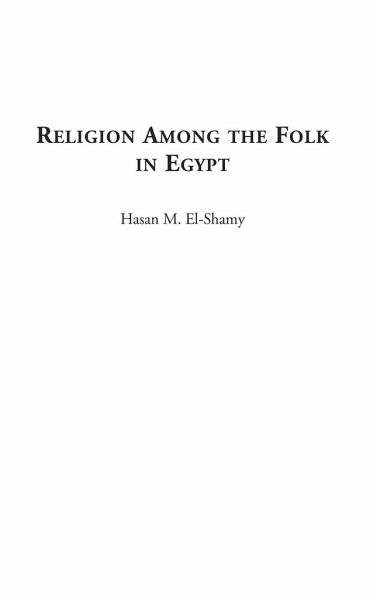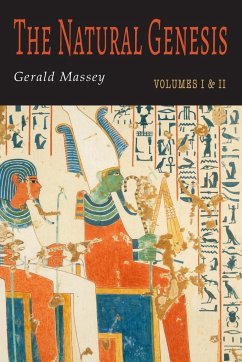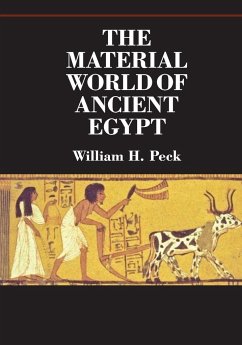
Religion among the Folk in Egypt
Versandkostenfrei!
Versandfertig in 1-2 Wochen
88,99 €
inkl. MwSt.

PAYBACK Punkte
44 °P sammeln!
Religion among the Folk in Egypt seeks to structure the entire field of supernatural beliefs and related practices in the folk communities of Egypt. These beliefs constitute a cognitive system on the one hand and represent behavioral experiences felt, thought, and lived by individuals and social groups on the other. The systemic qualities of the beliefs involved are represented by the fact that the components are interconnected; even a peripheral belief is connected to others and, ultimately, attributed to a central component. The individual 'believer' is aware of the system's components and o...
Religion among the Folk in Egypt seeks to structure the entire field of supernatural beliefs and related practices in the folk communities of Egypt. These beliefs constitute a cognitive system on the one hand and represent behavioral experiences felt, thought, and lived by individuals and social groups on the other. The systemic qualities of the beliefs involved are represented by the fact that the components are interconnected; even a peripheral belief is connected to others and, ultimately, attributed to a central component. The individual 'believer' is aware of the system's components and of the interrelationships among these components. Individuals and social groups manifest the behavioristic nature of a belief or a piece of knowledge within the system through actions. These actions, or rituals are motivated by these beliefs and are made in response to, and within the confines of, the beliefs. A major component of a belief is its affective quality. From the viewpoint of the believer, a religious belief is associated with a certain type of sentiment: awe, reverence, fear, love, hate, and so forth. Such feelings are learned and lead the individual to act in a certain manner and direction congruent with his feelings. In the present inquiry the sentiments involved are predominantly of a religious nature. The folk system only partially overlaps with the formal religion. Folk beliefs and practices, however, represent real behavioral patterns which influence the thoughts, feelings, and actions of individuals and tradition bound groups in daily living; in many respects it is the real religious culture, while formal religion represents the ideal or the supposed form of that culture.












